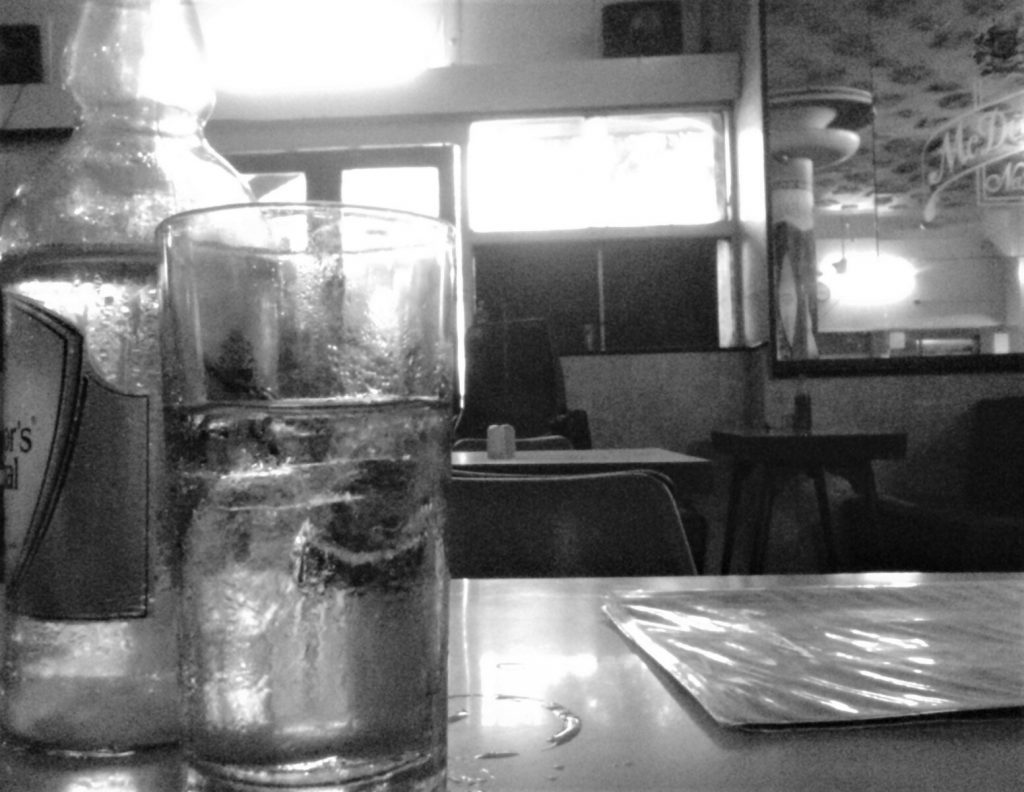A day of cricket, pulp fiction and other sundry ideas
Published @ Daily News & Analysis
To view the published version, see
Daily News & Analysis

The bars fill up the day before. Oly Pub, 2009. Photo by author.
Last Wednesday I walked into a popular pub in Kolkata. Olypub, as it is commonly called, was packed with customers by the time the twilight gave way to the neons. It was too early for the regular bench grabbers — the usual office crowd. So what was the occasion? A man approached me, guessing my perplexity. He whispered, ‘they are stacking for the bandh tomorrow.’ That was news to me. Stacking bottles for a rainy day is common, but dousing oneself with booze till saturation was a little too much to digest. A bystander proffered advice, “Well, in Kolkata you stack everything before a bandh. Everything.”
My God! Is this the city’s legendary humour or its legendary pathos? That it gets used to everything?
And what does it say about the bandh?
More than two and a half decades ago, when the communists came to power, bandhs were not as predictably boring as they are now. At least part of the Bengali middle-class discussed the issue(s) involved in the bandh, argued over its impact, took themselves and their mode of protest seriously.
Of course, the kids played on the empty streets, the local club had the one-off cricket tournament (only if the bandh was in winter, as cricket was still cricket and not carrom), the younger lot went to stay at a friend’s place on the other end of the city.
But, at the end of the day, people were still bothered. Some took out time for the processions, some visited the union office and some pondered over the next course of action. Even those who had no partisan interest in politics.
Now? The bandhs are still there – sans their urgency, sans their immediacy. Sans politics or the thought of it. Kids still play cricket, more because they hardly have grounds left for themselves and less because of the empty streets. Busy professionals turn to the latest pulp, either in print or in motion.
The local CPM functionary still catches up with comrades but not to discuss politics, but to discuss how much disruption they caused. The bandh is a fashionable and automatic tool of protest. The bandh is declared out of habit, not out of passion. And at the drop of a bourgeoisie hat! Even the opposition, such as it is in Bengal, has shown little originality in their forms of political protest, taking recourse to the bandh, which is, after all, a CPM speciality.
In the first decade after communists started lording over the plains of Bengal, acts of political protest had that edge of legitimacy. Communism happened out of historical churning and people took them at their word.
But those were days in black and white. As the years passed, the communists lost their politics and because they did so they held on to the rhetoric more strongly than ever. The bandh became another word in Bengal’s expanding but hollow political idiom. Much used, much abused. And mostly misunderstood. Bandhs do not have nostalgic value. They have now been exposed for what they are – a disruption of public and civic life. And that too under the auspices of the state which tried to legitimise it as a necessary tool of protest.
Ironically, as the CPM became omnipotent in Bengal, Kolkata has become more consumerist. A bandh halts the ceaseless shopping of the bhadralok as well as the comrades. As it is the cadre is getting impatient with Marx and wants a bit more. Any day now, they may want a bandh on bandhs.
comments for this post are closed